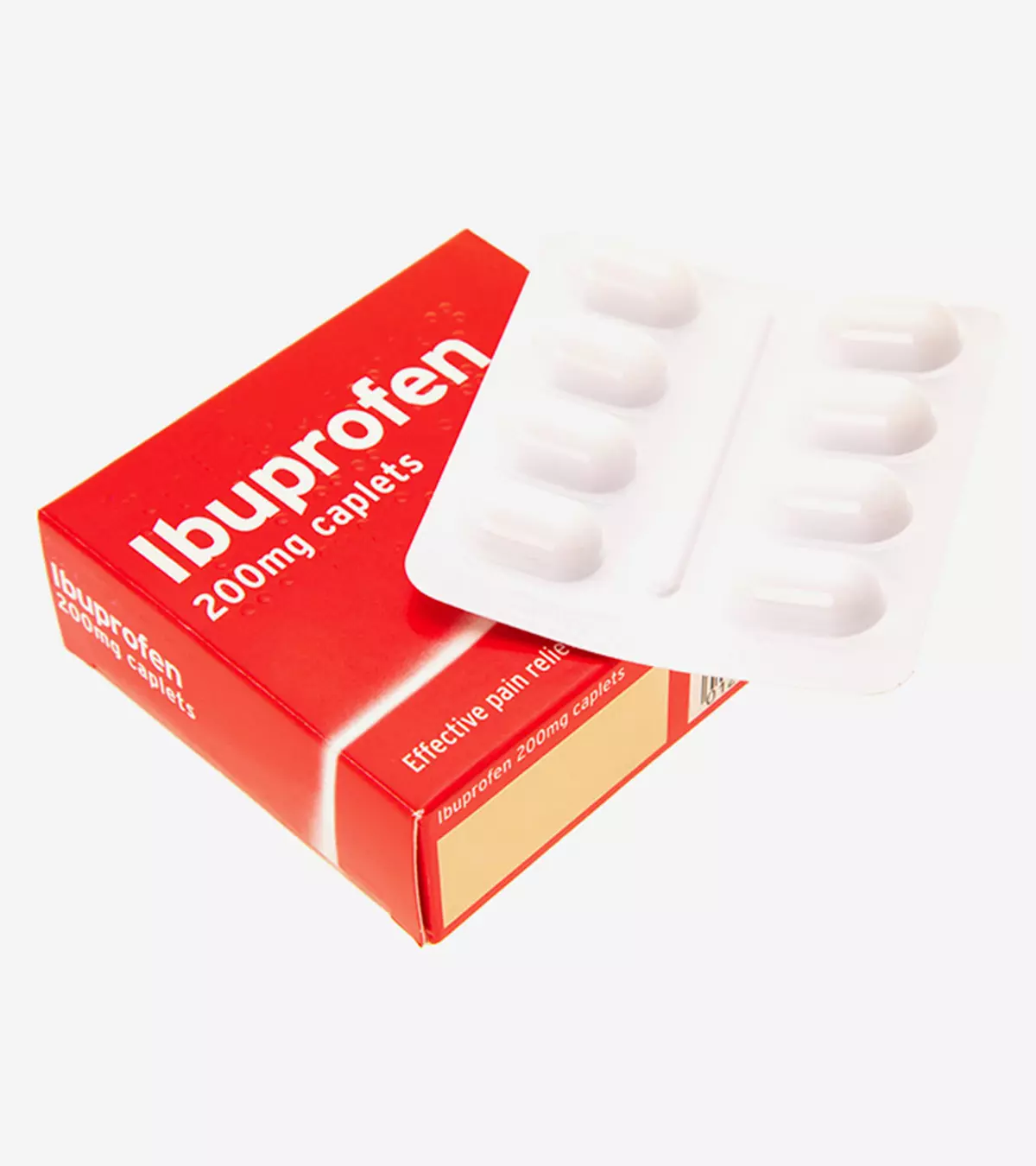
Image: ShutterStock
Glucosamine is naturally present in the fluid surrounding the joints. It is also available as a supplement for improving bone and joint health, and managing osteoarthritis. However, you should check with your doctor if you wish to take glucosamine while breastfeeding.
Whatever a nursing mother eats or drinks may secrete into the breast milk and pass on to the baby. Therefore, during lactation and breastfeeding, mothers should be careful about their diet and follow necessary safety measures before taking any medication or supplements to avoid causing any harm to the baby.
This post presents useful information about consuming glucosamine while breastfeeding, including whether it is safe, when doctors prescribe it, and some points to consider before consuming it.
Key Pointers
- Glucosamine, a naturally present fluid in joints, is mainly used as a supplement to treat osteoarthritis.
- It is commonly available in three forms: Glucosamine sulfate, Glucosamine hydrochloride, and N-acetyl-glucosamine.
- Breastfeeding mothers are advised to consult a doctor before taking glucosamine supplements as its exposure could be unsafe for infants.
- Nursing women must weigh the risks of glucosamine against the advantages before consuming it to avoid its adverse effects.
What Is Glucosamine?

Image: Shutterstock
Glucosamine is a substance that occurs in the fluids around your joints and is one of the many natural remedies to support bone health. It plays a major role and helps build cartilage. Glucosamine is a popular supplement for people who suffer from arthritis. In the US, glucosamine is one of the most common supplements that are non-mineral and non-vitamin and is deemed safe for adults. The supplement helps people overcome joint pain and difficulty in joint movement.
Glucosamine, especially glucosamine sulfate, occurs in the shells of shellfish. Manufacturers harvest it and add it to the dietary supplements. Sometimes, it is synthesized in laboratories and not taken directly from the shell of shellfish.
Glucosamine is available in different forms. Some of the most common forms you can find it in are as follows:
- Glucosamine sulfate
- Glucosamine hydrochloride
- N-acetyl-glucosamine
Though all three forms contain glucosamine, their concentration may vary and can have a possible impact on their effect (1).
 Quick fact
Quick factGlucosamine And Breastfeeding

Image: Shutterstock
Any food or drug intake by the mother passes to her infant when she feeds. Hence, if you are taking Glucosamine, then it is wise to consult your medical practitioner before continuing the same (2). We suggest this is because Glucosamine is not safe for children below 18 years and certainly not safe for infants.
Breastfeeding moms must ensure healthy dietary intake and be cautious about their maternal health and the supplements they take. Because some supplements may not only reduce the milk flow but also harm their infant’s health. Keep in mind that this concern applies to both prescribed and over the counter medicines.
When Do Doctors Prescribe Glucosamine?

Image: Shutterstock
By 2040, approximately 78.4 million adults aged 18 years and older are projected to be diagnosed with arthritis, as the Centers for Disease Control and Prevention reported. If you are suffering from osteoarthritis, arthritis (rarely rheumatoid arthritis), or severe joint pains, then your medical practitioner might advise you to take Glucosamine. However, if you are planning, or have already conceived, or breastfeeding, then it’s wise to take a second opinion before continuing the medication.
Glucosamine While Breastfeeding – Warnings
If the advantages do not offset the risks, then nothing is sound. The same applies when you take medicines especially while you are breastfeeding. Check with your doctor whether the potential benefits of glucosamine outweigh the dangers to your baby. Apart from this, you can also check if you can stop the use of Glucosamine until you choose to wean.
The bottom line is never to opt for any supplements while breastfeeding until you cross check for the same with your consulting obstetrician and your baby’s pediatrician. A medical expert will offer you thorough information about any such supplement, which will help you make a wise decision and take necessary health precautions while consuming it.
Frequently Asked Questions
1. What are the side effects of glucosamine?
Consuming glucosamine may sometimes cause mild side effects, such as indigestion, diarrhea, heartburn, headaches, constipation, and skin rashes. Further, ensure you consume shellfish-free glucosamine if you are allergic to seafood (3) (4).
2. How quickly does glucosamine work?
The benefits of glucosamine may take some time to reflect in the body. Hence, doctors generally prescribe glucosamine for at least two months to observe its effects (4). The typical dosage is 500 mg, taken thrice daily, bringing the total daily dose to 1,500 mg (1). However, doctors may prescribe smaller doses to breastfeeding mothers to check for negative reactions.
3. When is the best time to take glucosamine?
Glucosamine is generally taken three times a day with meals (4). Having it with meals may help support digestive health.
Doctors may prescribe glucosamine for arthritis or various joint problems. However, the consumption of glucosamine while breastfeeding is debatable. Any form of supplement or medication while nursing needs to be taken only after your OB/GYN prescription. Since the supplement is not recommended for children below the age of 18 and especially infants, it is better to consult your doctor before using glucosamine while breastfeeding to prevent any adverse reactions in the baby.
Infographic: Why Is Glucosamine Not Recommended For Osteoarthritis In Lactating Mothers?
Glucosamine is a natural supplement that relieves joint pain and prevents joint disease. However, its use when breastfeeding may not be in the best interest of you and your baby. The infographic below enumerates why it is not a first-line treatment option for osteoarthritis. Illustration: Momjunction Design Team
Illustration: Is It Safe To Use Glucosamine While Breastfeeding?

Image: Dall·E/MomJunction Design Team
References
- Glucosamine.
https://www.aafp.org/pubs/afp/issues/2008/0815/p471.html - Glucosamine.
https://www.ncbi.nlm.nih.gov/books/NBK501868/ - Glucosamine.
https://www.versusarthritis.org/about-arthritis/complementary-and-alternative-treatments/types-of-complementary-treatments/glucosamine/ - Glucosamine and Osteoarthritis.
https://www.aafp.org/pubs/afp/issues/2008/0815/p481.html
Community Experiences
Join the conversation and become a part of our nurturing community! Share your stories, experiences, and insights to connect with fellow parents.
Read full bio of Dr. Regina A. Hardin
Read full bio of Jessica Albert
Read full bio of Rohit Garoo
Read full bio of Shinta Liz Sunny

















